Hiring our Heroes: Bringing veterans into the clean energy industry
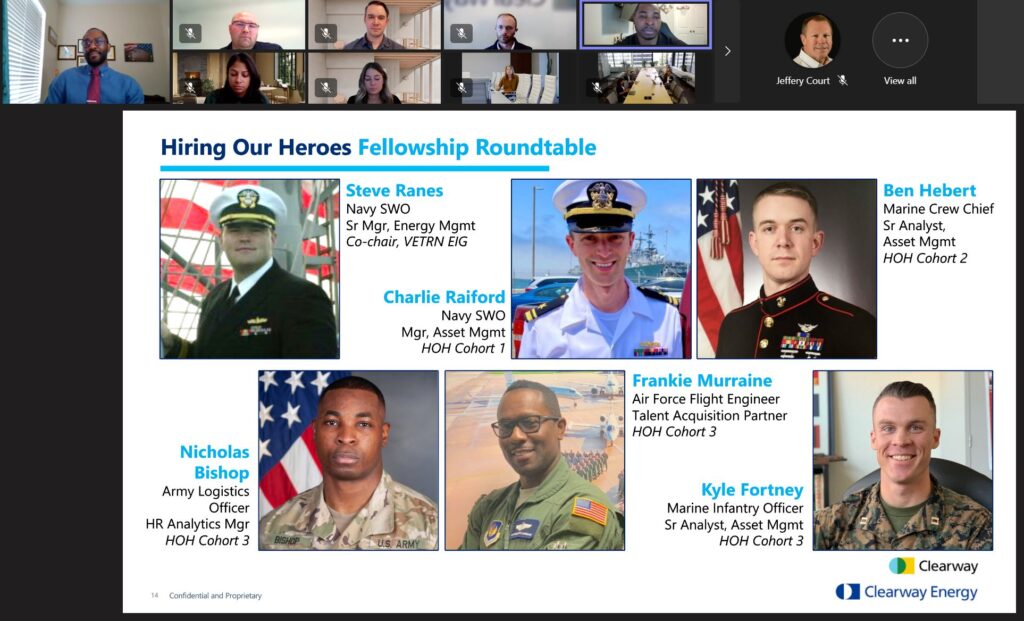
When Clearway launched its Hiring Our Heroes program late last year, the goal was simple: create a talent pathway dedicated to veterans entering the civilian workforce. To date, Clearway has hosted six fellows through a 12-week program that includes both work experience and participation in dedicated professional development sessions. At the end of their fellowships, participants may be offered a full-time position with their host company.
Hiring Our Heroes is one of a number of programs dedicated to veteran recruitment, training, and retention at Clearway, which was recently named in Military Times’ 2023 Best for Vets Employers.
In celebration of Veterans Day, Clearway’s VTRN employee inclusion group hosted a roundtable with five current and former Hiring Our Heroes fellows at Clearway.
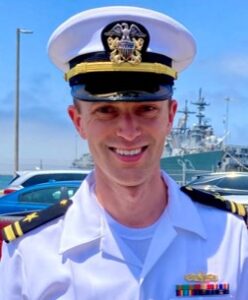
Charlie Raiford is a Manager in Asset Management and is now a full-time employee. Charlie served four years as a Navy Surface Warfare Officer, primarily serving as the Navigator aboard the USS Stockdale, a guided missile destroyer based in San Diego. He was responsible for overseeing Stockdale’s position and movements during two deployments to the Western Pacific.
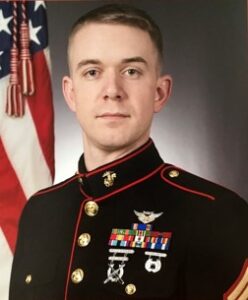
Ben Hebert is a Senior Analyst in Asset Management and is now a full-time employee. Ben served 15 years as a Marine Corps Helicopter Crew Chief, door gunner, and tactics instructor. He has been deployed to over 20 countries, including Afghanistan, and (almost) every US state. He also served four years on the Presidential Helicopter Squadron and was the personal crew chief for Presidents Obama & Trump.
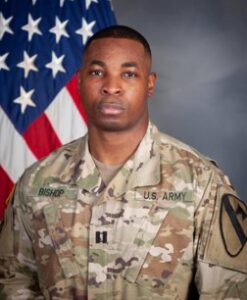
Nicholas Bishop is an HR Program and Analytics Manager as an HOH Fellow. As an Army Logistics Officer, Nick was responsible for planning, developing, and directing all logistic operations for his unit. He’s held positions at the platoon and brigade levels, as well as company commander. He was deployed to Afghanistan, and most recently Poland.
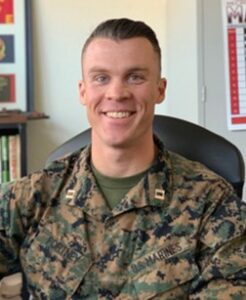
Kyle Fortney is a Senior Analyst in Asset Management as an HOH Fellow. Kyle was a Marine Corps Infantry Officer and has led units as large as 216 Marines and Sailors in preparation for deployment to the Indo-Pacific. He was assigned to oversee the Marine Corps Recruit Depot (Boot Camp) in San Diego, where he was responsible for the transformation of over 2,000 recruits into US Marines.
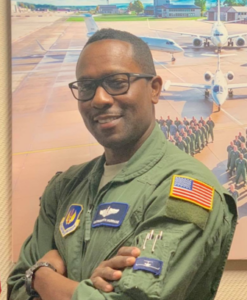
Frankie Murraine is a Talent Acquisitions Partner as an HOH Fellow. Frankie was an Air Force Flight Engineer on a C-37A (Gulfstream V), a high-altitude, long-range business jet responsible for transporting high-ranking military members and Congressional Delegates. He was a functional expert with thorough knowledge & understanding of systems critical to the aircraft’s safe operation while in flight.
What were your biggest concerns transitioning from the military into the civilian workforce? And in that transition, what would you want hiring managers to be aware of when they interview veterans?
BEN: The biggest concern for me was making sure that what I do has a purpose. In the military, we’re so driven by the task that has a purpose, the bigger picture. Looking at all the jobs out there, there are not a lot of jobs with a clear purpose, a way to make the community or the place around you better. And that’s what drew me to renewable energy.
NICK: I completely agree – having a sense of purpose is key. For me, it was also important to make sure I could reintegrate with my family. I want a successful career, but I also want to be more present than I was able to be in the military. So that’s something that’s always at the forefront for me — my time and how can I be present in both a professional manner and also in my family.
FRANKIE: My concern was more of the cultural difference. Would I have been able to adjust to a less structured environment? In the Air Force, I never put my cell phone down. I get home on the weekends and after work and I’m expecting a phone call. Even at the end of the day, I was never done working. Moving into the civilian sectors – when it’s five o’clock, you’re done. So that was quite difficult for me.
CHARLIE: I’ll bring this back to the perspective of hiring managers or the company. Something that does come up is the fact that you know in the military you’re very used to having very clearly defined objectives and tasks because those are normally getting pushed down from the level above you, the level above that. As we’re transitioning into the civilian side, it’s important for hiring managers to recognize that experience, and it’s also important for us as veterans to get used to it a little bit more of the ambiguity. Sometimes, it’s being able to know the broader objective and figure out how to execute it without clear direction.
What are some lessons from your time in the service that you’ll apply in the civilian workforce? And what are the skills that you will rely on as you’re learning a new role and organization?
BEN: This is probably pretty obvious, but for veterans, work ethic is definitely one of our strong suits. Veterans just know how to work hard. I also developed a sense of loyalty and camaraderie, which I’m thrilled to see here at Clearway. It’s wonderful to be in a place where so many people want to help you succeed and bring you into the fold. One last thing is strong communication and collaboration with other people. I think it’s really great that Clearway is set up the way it is, how so many people talk to each other, and the structure almost feels flat when it comes to communication. It’s great to be a part of an organization where you’re not just a number.
CHARLIE: In one word, it’s adaptability. You must be adaptable in the military. Many times, you’re put into a position where you may not always know all of the information or background that you would have liked and you kind of have to figure it out. You have to go out, ask questions, and talk to subject matter experts.
Coming out of the military is almost like having a non-technical MBA. It’s not necessarily in the finance, accounting, or strategy type class work, but it is in a lot of hands-on learning in leadership and development, and strategic thinking.
NICK: Charlie said it well: it’s adaptability and flexibility. When I stepped into the door here at Clearway, it helped me to have a willingness to jump in and help out, regardless of whether or not I knew what was going on.
I also appreciate that no one felt like you were stepping on their toes or that your help was unwanted. At Clearway, there’s a team mindset to achieve whatever goal it was that we were trying to achieve for that day, that week, that month. On the flip side, we’re also leveraging our discipline. Veterans understand that as long as you’re putting in your effort and you’re doing your part, you’re going to succeed.
FRANKIE: Agreed with everything that’s been said. The military has taught us discipline and work ethic, and that’s how we approach every single task. We can stay focused on any assigned duties or tasks that we’re assigned, and we don’t leave that duty until it’s done.
In addition, adaptability and just resilience. We’re trained to adapt to changes and circumstances and just to persevere through all our challenges.
What’s the one piece of advice you could give to every hiring manager looking to hire a transitioning veteran?
CHARLIE: I think it’s important to know that the veteran’s experience is not going to line up exactly with what might be on the job requirement. So, I’d suggest taking that extra effort to understand that veteran’s skillsets and then figure out how they can adapt. And I’d recommend taking advantage of programs like Hiring Our Heroes. You can fill that role after three months of training fellows, which is plenty of time to really learn.
BEN: Agreed: I think it’s that willingness to learn and understand what a veteran candidate can do, even if they’ve never done it before. For most of us in the military, we’re used to learning. I went through a dozen different schools. I’m used to starting from the bottom and learning and working my way up. It’s something that I’m comfortable doing. So, recognize the service members who want to learn and are really eager to pick up a new skill, and that person will likely also have a great sense of enthusiasm and drive.
FRANKIE: My advice would be to make sure fellows know what they can get out of a program like this. This program and its networking opportunities are wonderful. I’ve also really benefited from mentorship opportunities and hope all hiring managers can help create those.
NICK: What I would say is that when you look at a veteran’s resume, whether they’re in logistics or infantry or something else, that’s really just a trade. But what you really need to understand is what they actually do in those roles. For most of us, we are leaders, we are advisors, we are mentors, we are programmers, and we are so much more than that. So talk to your veteran colleagues and get an understanding of what a service member’s day-to-day looks like. That’s what happened here at Clearway, and it was great.
More about Hiring Our Heroes at Clearway.
Hiring Our Heroes is sponsored by the Department of Defense’s SkillBridge program, which allows service members who are leaving the military to gain relevant industry exposure with civilian companies at no cost to the host company.
Clearway designed the Hiring Our Heroes program to also include:
- Mentorship & Buddy Program: Each hiring manager dedicates professional development time. The VETRN EIG leads provide a feedback mechanism and career guidance. We’ll also assign a peer buddy for “ask me anything” type questions.
- Launch Onboarding: In conjunction with the Launch program, fellows will be introduced to the renewables industry and Clearway’s various business lines, functions, and teams.
- Professional Networking: Each fellow will be required to meet with every member of their own function or team, and that of 2-4 adjacent departments determined by the hiring manager.
- Formal Learning & Training: Specific Learning Courses will be assigned by the hiring manager and required for satisfactory completion of the fellowship, whether on the corporate or technical track.
Clearway’s Hiring Our Heroes program is open to new applicants on a rolling basis. To learn more about the program, please email Kelley Ferantelli.